Maintaining healthy blood sugar levels is crucial for overall well-being. It plays a key role in disease control and can support various aspects of our health, including weight management, energy levels, and heart health. Understanding which foods can help lower blood sugar levels and control appetite is essential, especially for individuals managing diabetes or looking to improve their overall blood sugar control.
In this blog, we will explore 10 surprising foods that have been found to lower blood sugar levels. From cinnamon and chia seeds to apple cider vinegar and garlic, these foods offer more than just delicious flavors. They contain natural compounds and nutrients that can aid in blood sugar management and provide additional health benefits.
The Magic of Cinnamon
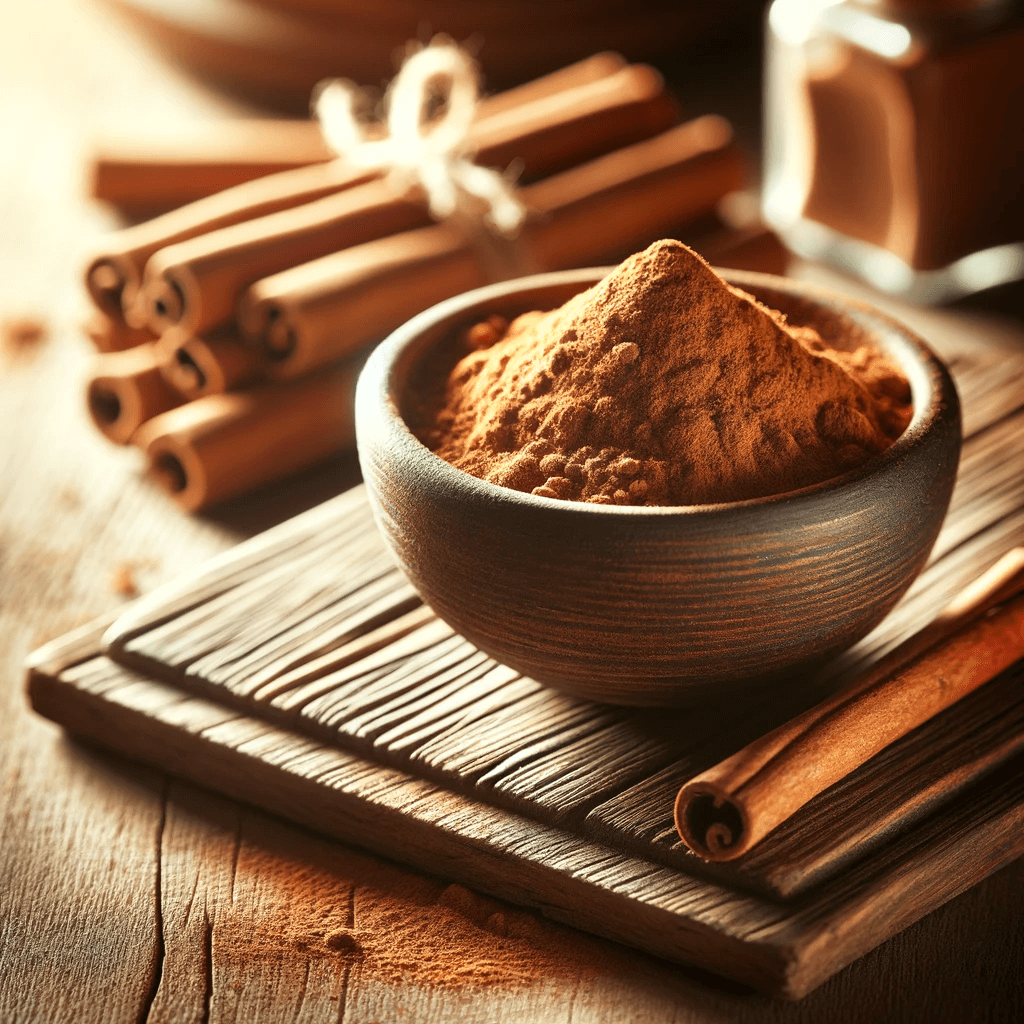
One of the surprising foods that can help lower blood sugar levels is cinnamon. This sweet and fragrant spice, derived from the bark of trees, has been used for centuries in culinary and medicinal applications.
Cinnamon contains compounds that have been shown to have potential blood sugar-lowering effects. It may support blood sugar management by increasing insulin sensitivity, mimicking insulin’s actions, and reducing blood glucose levels after meals. Incorporating cinnamon into your diet can be as simple as sprinkling it on oatmeal, adding it to coffee, or using it as a spice in sweet and savory dishes, such as cereals.
How Cinnamon Lowers Blood Sugar
Cinnamon may lower blood sugar levels by increasing insulin sensitivity, which helps cells take in sugar from the bloodstream more efficiently. The spice’s antioxidants, such as polyphenols, may combat oxidative stress related to high blood sugar levels. Additionally, cinnamon’s active compounds, including cinnamaldehyde, may mimic insulin, aiding in sugar uptake by cells.
Incorporating cinnamon into your diet may also help lower blood glucose spikes after meals. Studies have shown that adding cinnamon to high-carb meals can lead to lower blood sugar levels, particularly among individuals with diabetes or insulin resistance.
Chia Seeds: Tiny Superfoods
Another surprising food with blood sugar-lowering properties is chia seeds. These tiny seeds, derived from the Salvia hispanica plant, are packed with nutrients, including fiber, protein, and omega-3 fats.
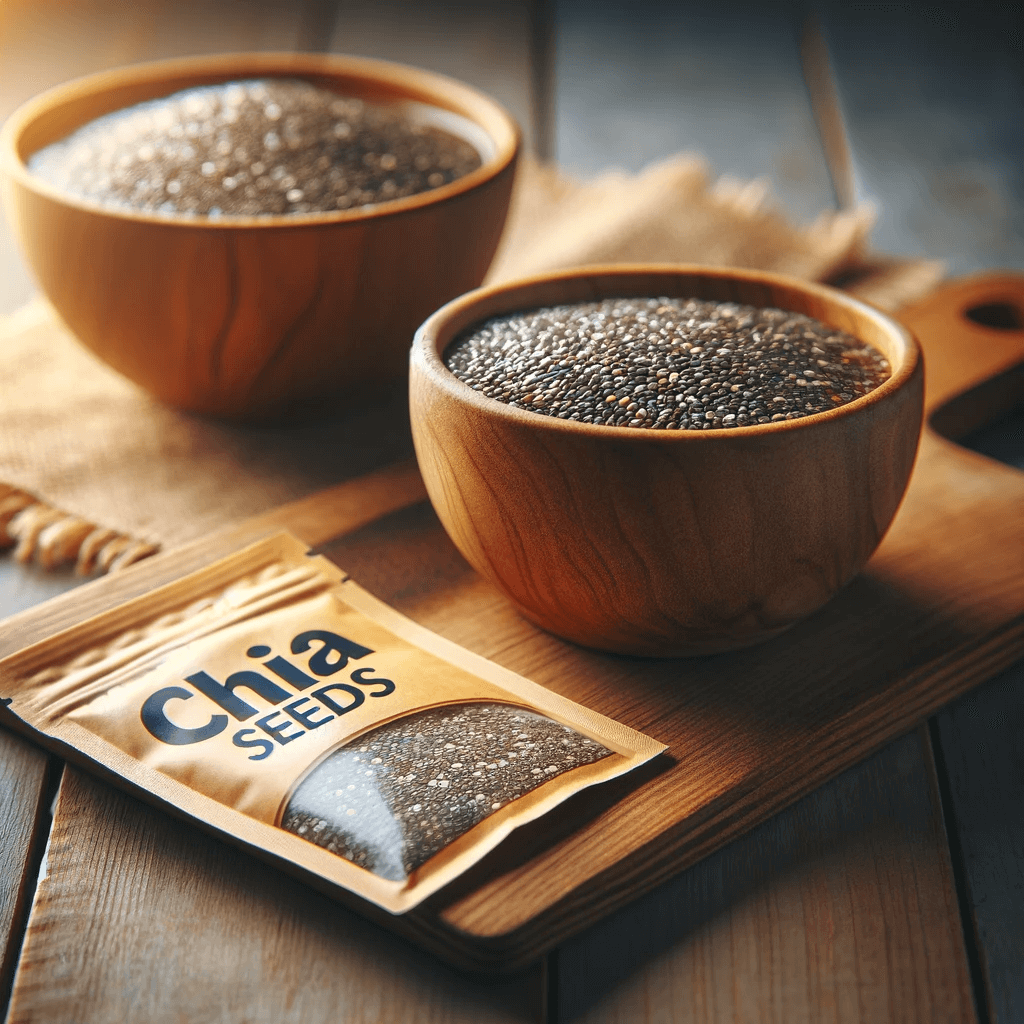
Introduction to Chia Seeds
Chia seeds have been consumed for centuries due to their potential health benefits. They are rich in soluble fiber, which aids digestion, promotes feelings of fullness, and potentially leads to steadier blood glucose levels. These versatile seeds have a mild taste, making them an easy addition to smoothies, yogurt, oatmeal, or baked goods.
Chia Seeds and Blood Sugar
The high fiber content of chia seeds plays a significant role in blood sugar control. When consumed, chia seeds form a gel-like substance in the stomach, slowing down digestion and the release of sugar into the bloodstream. This slower sugar release can help prevent blood sugar spikes and contribute to more stable blood glucose levels.
Including chia seeds in your diet can provide beneficial nutrients, support weight management, and aid in overall blood sugar control. Whether sprinkled on top of yogurt, mixed into smoothies, or used as an egg substitute in baking, chia seeds are a versatile addition to any diabetes-friendly meal plan.
Apple Cider Vinegar: More than a Kitchen Ingredient

Apple cider vinegar, known for its tangy flavor, is another surprising food that may help lower blood sugar levels. Beyond its culinary uses, it has gained popularity for its potential health benefits, including blood sugar control.
Basics of Apple Cider Vinegar
Apple cider vinegar is made through the fermentation of apple juice, resulting in the creation of acetic acid, known for its potential health effects. Unfiltered, unpasteurized apple cider vinegar contains a substance called the “mother,” a combination of enzymes, proteins, and good bacteria. This vinegar can be easily incorporated into various dishes, dressings, or even consumed as a diluted drink.
Apple Cider Vinegar’s Role in Blood Sugar Control
The acetic acid in apple cider vinegar has been shown to have blood sugar-lowering effects. Studies suggest that consuming vinegar, including apple cider vinegar, before meals high in carbohydrates can reduce blood glucose spikes. It is believed that vinegar helps slow down the digestion of carbs, resulting in a slower release of sugar into the bloodstream. Another way to incorporate vinegar into your diet is by using it in a dressing with olive oil on a salad made with spinach, kale, or other multicolored vegetables for a delicious and healthy meal.
Adding apple cider vinegar to your diet, whether in salad dressings or diluted with water, may support healthy blood sugar management. However, moderation is key, as excessive consumption of vinegar can lead to digestive issues or interact with certain medications. Consulting a healthcare professional is advised, especially for individuals with diabetes or other health conditions.
Garlic: Pungent but Powerful
Garlic, known for its pungent aroma and flavor, is not only a delicious addition to meals but also offers potential blood sugar-lowering effects.
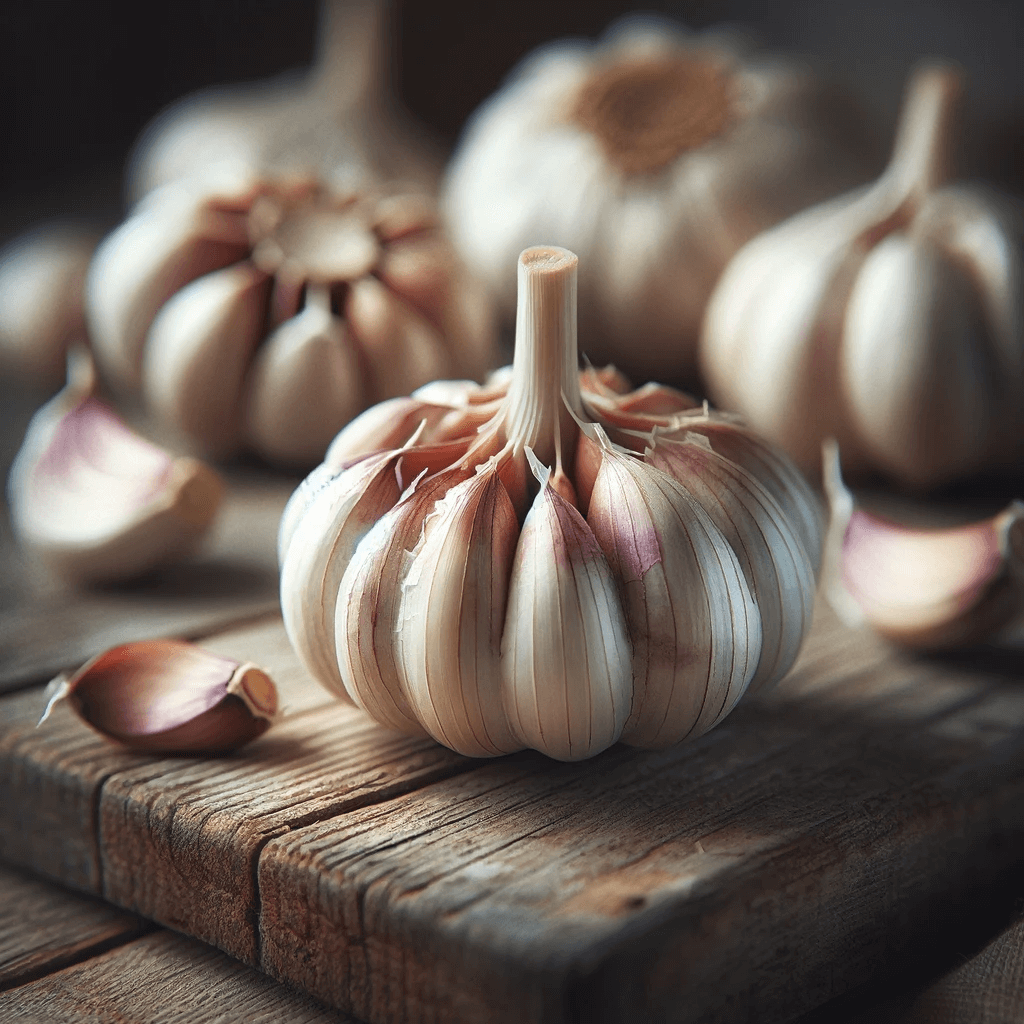
An Introduction to Garlic
Garlic has been used for centuries for its potential health benefits. It contains several nutrients, including vitamin C, and healthy fats. Recent research suggests that garlic may have a positive impact on blood sugar management, making it worthy of consideration for individuals looking to support healthy blood glucose levels.
Garlic’s Impact on Blood Sugar Levels
Studies have shown that consuming garlic, whether fresh, cooked, or as a supplement, may help lower blood sugar levels. Garlic may have properties that contribute to lower blood glucose levels by increasing insulin sensitivity and improving insulin secretion.
Garlic’s active compounds, including sulfur-containing compounds like allicin, may assist in blood sugar management and control. These compounds are believed to stimulate insulin release, promote sugar uptake by cells, and reduce insulin resistance, thereby helping regulate blood sugar levels more effectively.
Including garlic in meals can be a flavorful way to support healthy blood sugar levels, especially when combined with a balanced diet and exercise. However, it’s important to note that the blood sugar-lowering effects of garlic may vary among individuals, and consulting a healthcare professional is recommended, especially for individuals with diabetes or other medical conditions.
Avocado: A Creamy Delight
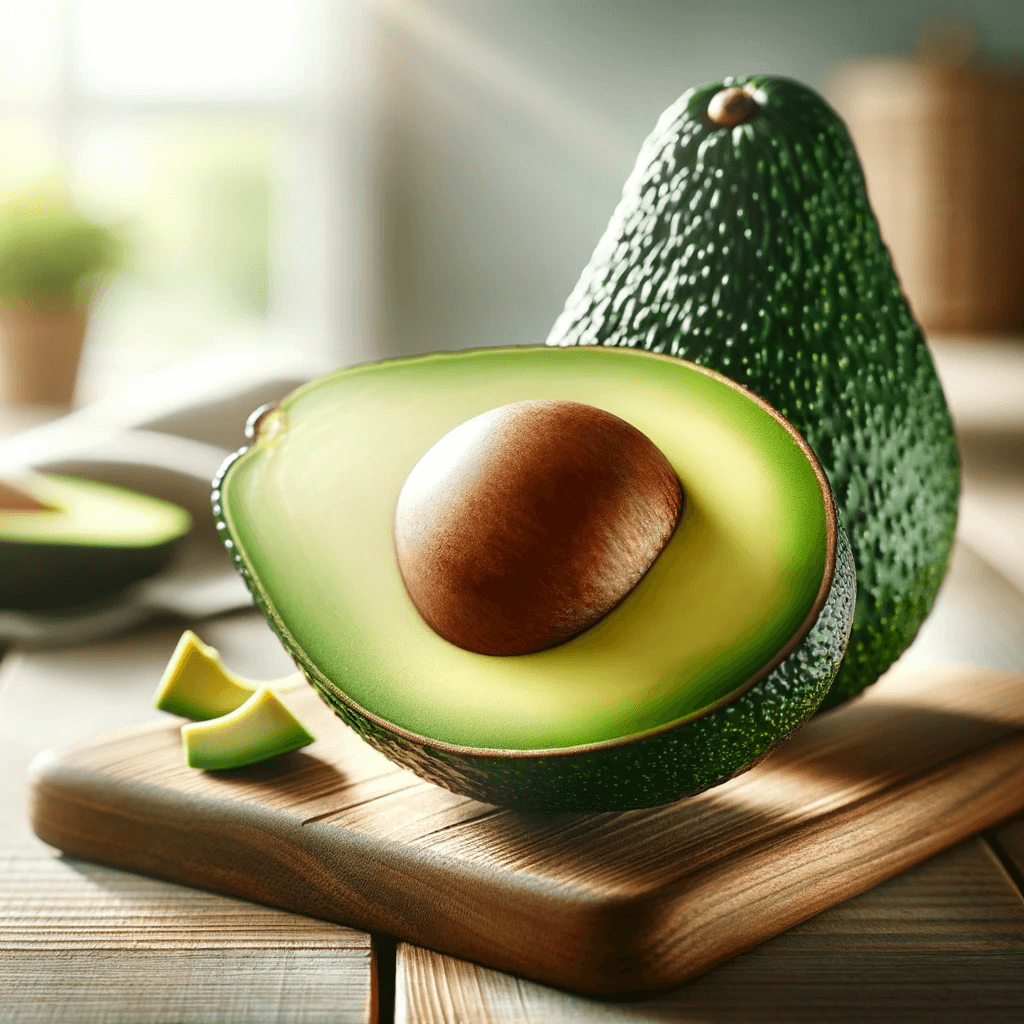
Avocado, known for its creamy texture and rich flavor, is also surprising for its potential blood sugar-lowering properties.
Avocados are nutrient-dense fruits, high in healthy fats, fiber, and key nutrients like vitamin E. They are also low in carbohydrates, making them a suitable choice for individuals looking to control blood sugar levels or manage diabetes.
Avocado and its Blood Sugar Lowering Properties
Avocados have a low glycemic index, meaning they have a minimal impact on blood sugar levels. The healthy fats found in avocados, such as monounsaturated fats, can contribute to improved insulin sensitivity, making cells more responsive to insulin and helping regulate blood sugar levels.
Additionally, avocados’ high fiber content can slow down digestion, preventing blood sugar spikes, and promoting satiety. Including avocados in meals, such as salads, wraps, or even as a substitute for butter or mayonnaise, can provide healthy fats, nutrients, and blood sugar management benefits.
Avocados are a versatile and nutritious addition to a diabetes-friendly meal plan, offering not only blood sugar control but also potential benefits for heart health and weight management.
Greek Yogurt: Sour and Sweet
Greek yogurt, with its tangy flavor and creamy texture, is another surprising food that can support blood sugar control.
Greek yogurt is a strained yogurt, resulting in a thicker consistency compared to regular yogurt. It is a rich source of protein, calcium, and probiotics, which promote a healthy digestive system.

Greek Yogurt’s Effect on Blood Sugar
Greek yogurt has a lower glycemic index compared to other dairy products, meaning it has a slower and more gradual impact on blood sugar levels. The high protein content in Greek yogurt can help lower blood sugar spikes after meals, as protein takes longer to digest and has a minimal effect on blood sugar levels. For those who are dairy-free, soy milk or unsweetened almond milk are also good options as they contain protein and have a lower glycemic index.
The probiotics found in Greek yogurt can also have a positive impact on blood sugar control. These beneficial bacteria contribute to a healthy digestive system, potentially improving nutrient absorption and insulin sensitivity.
Including Greek yogurt in meals, such as smoothies, breakfast bowls, or as a substitute for sour cream, can be a convenient way to incorporate protein, probiotics, and blood sugar management benefits into your diet.
Almonds: Nutty and Nutritious
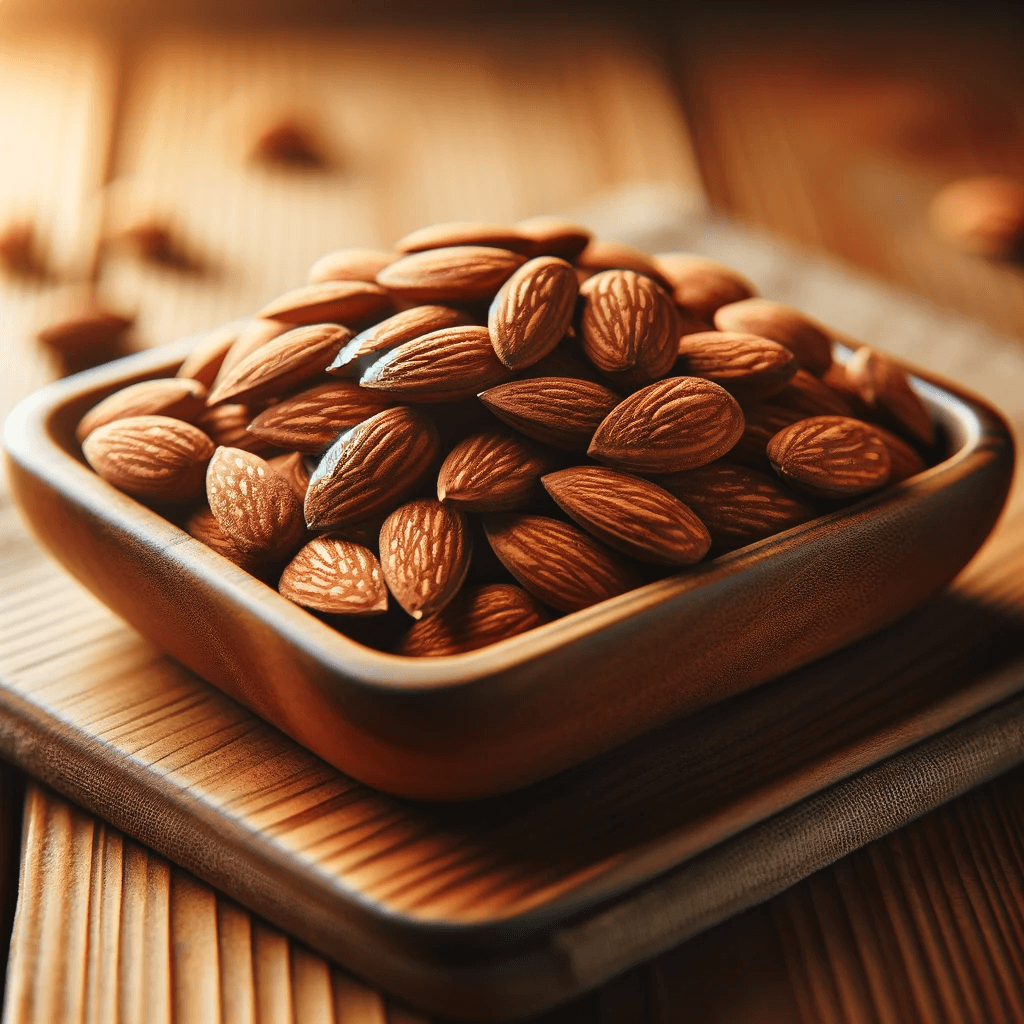
Almonds, known for their crunch and rich flavor, are not only a tasty snack but also surprise with their potential blood sugar-lowering effects.
Almonds are a good source of healthy fats, fiber, vitamin E, and key minerals like magnesium. They can be enjoyed in various forms, such as raw, roasted, or almond milk, making them a versatile nut loved by many.
Almonds and Blood Sugar Control
Almonds have a low glycemic index, meaning they have a minimal impact on blood sugar levels. The combination of healthy fats, protein, and fiber found in almonds can contribute to improved blood sugar control, insulin sensitivity, and weight management.
The healthy fats in almonds, including monounsaturated fats, can aid in blood sugar management by slowing down digestion and preventing blood sugar spikes. The high fiber content of almonds also helps regulate blood glucose levels by promoting satiety, slow absorption of sugar, and supporting improved insulin sensitivity.
Including almonds as a snack, topping, or in almond milk can provide additional nutrients, healthy fats, and blood sugar-lowering benefits. However, moderation is key, as almonds are calorie-dense, and portion control is important, especially for individuals aiming for weight loss or managing diabetes.
Turmeric: The Golden Spice
Turmeric, known for its vibrant color and earthy flavor, adds more than just appeal to dishes. It also offers potential blood sugar-lowering benefits.
Turmeric, derived from the Curcuma longa plant, has been used for centuries, both in Asian cuisine and traditional medicine. It contains a compound called curcumin, which is responsible for its potential health benefits, including its anti-inflammatory effects.
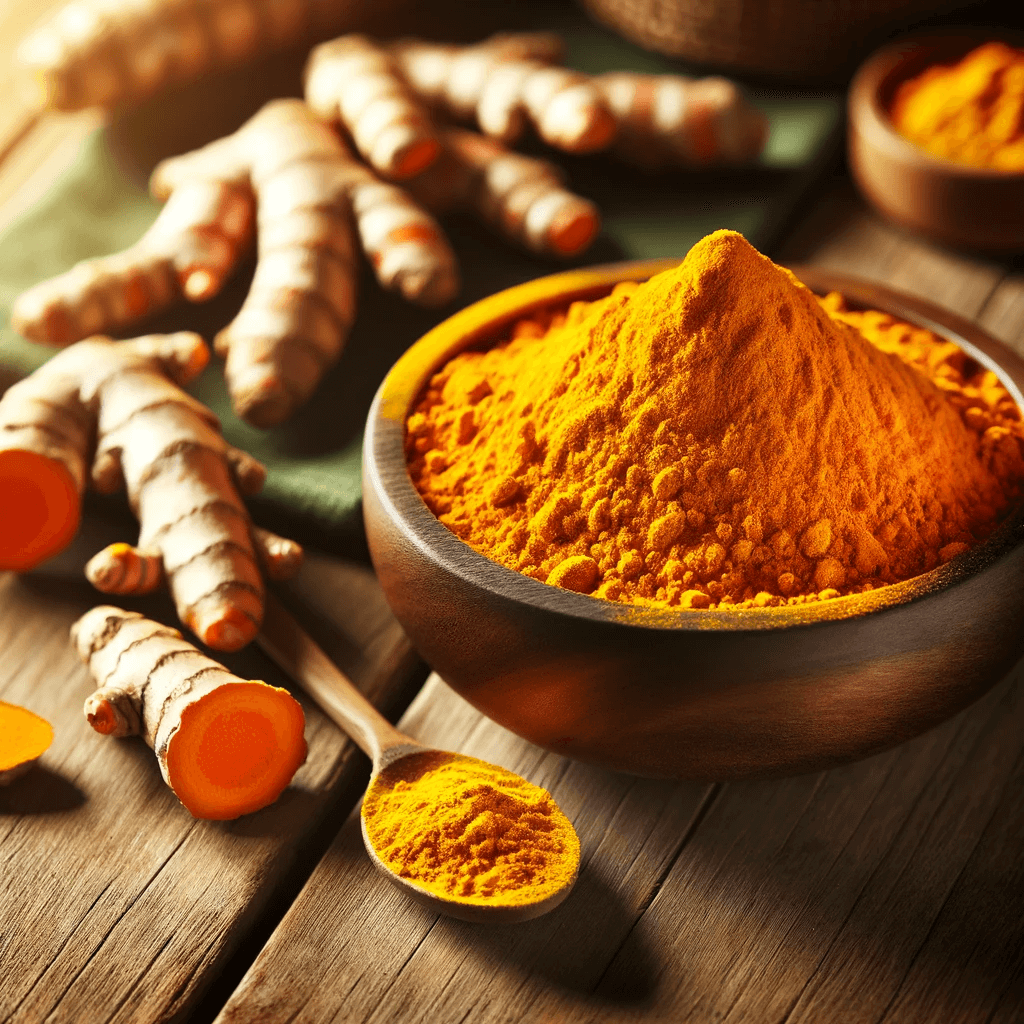
Turmeric’s Effect on Blood Sugar
Research suggests that curcumin, the active compound in turmeric, may help lower blood sugar levels. It has been found to improve insulin sensitivity, enhance glucose uptake by cells, and reduce blood glucose levels.
Turmeric’s anti-inflammatory properties can also contribute to blood sugar management, as chronic inflammation is often associated with insulin resistance, a condition where cells become less responsive to insulin. By reducing inflammation, turmeric may support insulin sensitivity and aid in blood sugar control.
Incorporating turmeric into your diet can be as simple as adding it to curries, rice dishes, roasted vegetables, or golden milk. Including turmeric in your meals can provide flavor, vibrant color, and potential blood sugar-lowering benefits.
Blueberries: Small but Mighty
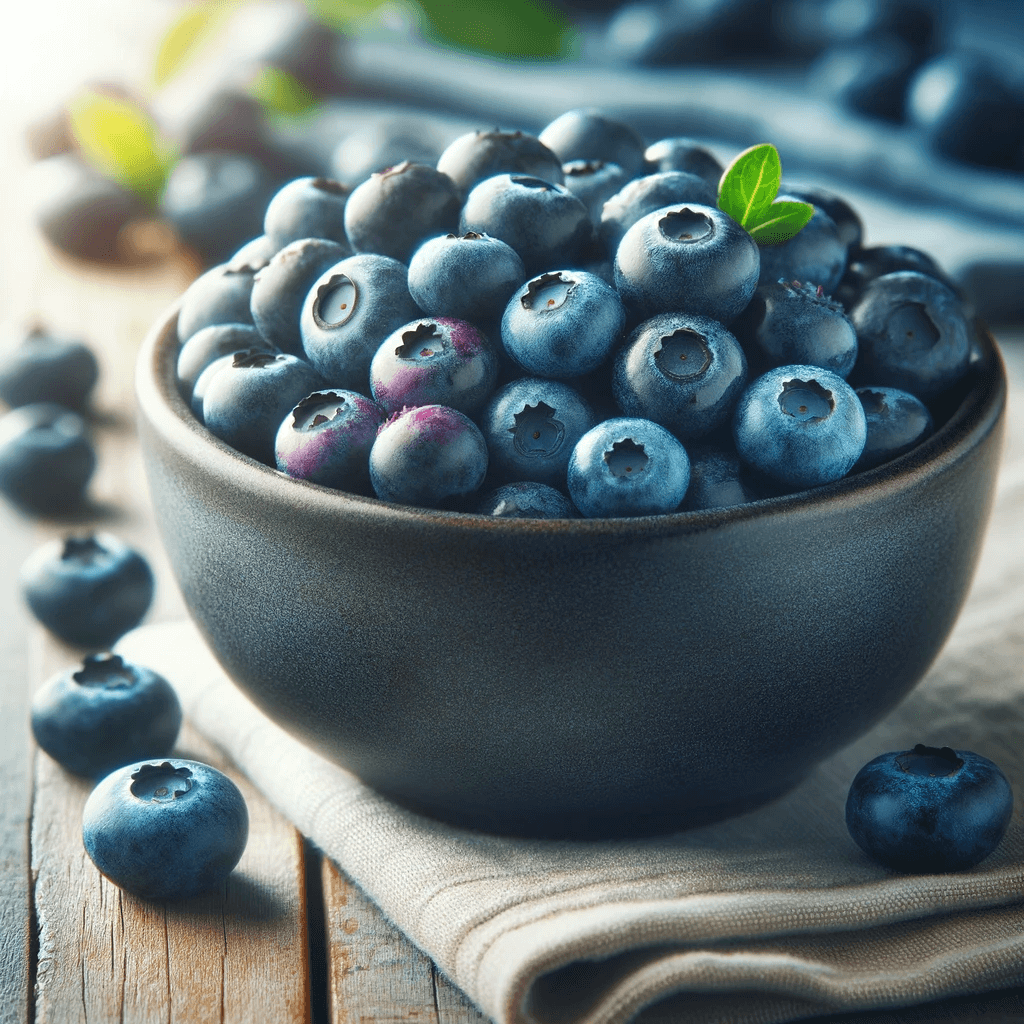
Despite their small size, blueberries pack a nutritional punch and are surprisingly beneficial for blood sugar control.
Blueberries belong to the Vaccinium family of plants and are known for their vibrant color, sweet-tart flavor, and potential health benefits. They are commonly used in jams, smoothies, baked goods, and salads.
Blueberries and Their Impact on Blood Sugar
Blueberries contain compounds, including fiber and antioxidants, that can contribute to lower blood sugar levels and improved blood glucose management. The fiber content in blueberries slows down digestion, preventing blood sugar spikes and promoting more stable blood glucose levels.
The polyphenols and anthocyanins found in blueberries have shown potential benefits for blood sugar control, insulin sensitivity, and reducing the risk of developing type 2 diabetes complications. Including blueberries in your diet, whether fresh or frozen, can provide not only a burst of sweet flavor but also blood sugar management benefits.
Broccoli: A Green Giant
Broccoli, known for its vibrant green color and crunchy texture, surprisingly offers potential blood sugar management benefits.
Broccoli, a cruciferous vegetable, is related to cauliflower, kale, and cabbage. It is high in vitamin C, vitamin K, folate, and fiber, making it a nutrient-dense choice for overall wellness.

Broccoli’s Role in Managing Blood Sugar
Broccoli consumption has been linked to lower blood sugar levels and improved insulin sensitivity. The high fiber content of broccoli aids in blood sugar management, as fiber slows down digestion, preventing blood glucose spikes, and promoting steadier blood glucose levels.
Broccoli also contains bioactive compounds, such as sulforaphane and glucosinolates, that have potential anti-diabetic effects. These compounds may assist in blood sugar control, insulin sensitivity, and overall disease management.
Integrating broccoli into your meals, whether steamed, roasted, or added to stir-fries, salads, or soups, can provide essential nutrients, fiber, and potential blood sugar-lowering benefits.
How These Foods Work Together to Lower Blood Sugar?
Various foods that lower blood sugar levels work together to support blood sugar management. They do so by providing nutrients, antioxidants, healthy fats, fiber, and other compounds that aid in insulin sensitivity, glucose control, and blood sugar regulation. By incorporating these foods into a balanced diet, individuals can potentially achieve better blood sugar levels, weight management, and overall health.
How Can You Incorporate These Foods into Your Diet?
Incorporating these blood sugar-lowering foods into your diet is simple. Add berries to your breakfast, substitute rice with high-fiber quinoa, use vinegar in salad dressings, and sprinkle cinnamon on oatmeal or yogurt. These diabetes-friendly foods can positively impact your blood sugar levels.
Conclusion
In conclusion, incorporating these surprising foods into your diet can help lower your blood sugar levels and contribute to overall health. Cinnamon, chia seeds, apple cider vinegar, garlic, avocado, Greek yogurt, almonds, turmeric, blueberries, and broccoli all have unique properties that support blood sugar control. By understanding how these foods work together and finding creative ways to include them in your meals, you can make a positive impact on your health. Remember to consult with a healthcare professional before making any significant changes to your diet, especially if you have existing health conditions or are taking medication. Take charge of your health and explore the benefits of these blood-sugar-lowering foods today.
Frequently Asked Questions
What are some common misconceptions about foods that lower blood sugar?
One common misconception is that all fruits are bad for blood sugar levels, but in reality, some fruits, such as berries (especially raspberries), and citrus fruits, can actually help lower blood sugar due to their low glycemic index and high fiber content. It is also important to differentiate between whole fruits and fruit juices, as the latter can have a more significant impact on blood sugar levels due to their high sugar content.
How do certain foods help to regulate blood sugar levels?
Certain foods, especially those with a low glycemic index, are digested and absorbed more slowly, leading to a slower rise in blood sugar levels. They also tend to be high in fiber, healthy fats, and proteins, which together contribute to better blood sugar control, improved insulin sensitivity, and reduced blood glucose spikes after meals. Additionally, some foods contain specific compounds, such as cinnamon, that mimic insulin’s actions, promote sugar uptake by cells, or have anti-inflammatory effects, all of which aid in blood sugar regulation.
Are there any potential risks or side effects of consuming these blood-sugar-lowering foods?
While these blood-sugar-lowering foods offer significant health benefits, it is important to consume them in moderation. Excessive consumption of high-calorie foods, even if they have blood sugar-lowering properties, can still lead to weight gain and other health problems. In some cases, certain individuals may have reactions or interactions with medications, especially with herbal supplements like cinnamon or turmeric. Additionally, some foods, like vinegar, may cause digestive issues or interact with certain medications, so it’s essential to consult a healthcare professional or registered dietitian before making significant dietary changes, especially if you have diabetes or other health conditions.
Are these foods effective as a long-term solution for managing blood sugar levels?
These blood-sugar-lowering foods, when incorporated into a balanced and healthy diet, can contribute to improved blood sugar control in the short-term. However, it’s important to note that lifestyle changes, including regular physical activity and maintaining a healthy weight, are vital for long-term blood sugar management. Prioritizing whole grains over processed ones and refined carbs is an effective long-term solution for managing blood sugar levels. These foods should be part of a holistic approach to diabetes management, which may include medication, insulin, and other personalized treatments. Working with a healthcare professional, registered dietitian, or diabetes educator can provide guidance in developing a sustainable, long-term plan for managing blood sugar levels and overall health.





